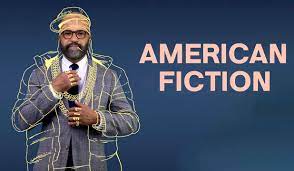
After finally getting to see American Fiction, it is clear to me why it was nominated for Best Picture. I don’t know if it will win, and I don’t even think it’s my favorite movie of the year. It isn’t the only movie with a powerful message, and American Beauty is more on the nose with its messaging than some of the other Oscar nominated films are this year. That said, American Fiction is a powerful film with powerhouse performances by the actors and a script that is sneaky-good.

The screenplay, which was nominated for Best Adapted Screenplay at this year’s Oscars, is a great mix of thematic storytelling and powerful dialogue. There are a lot of very uncomfortable ideas being discussed in this film in ways that shouldn’t make us laugh but do. There were scenes when I was laughing uproariously at things that shouldn’t have been funny but were incredibly funny within the context of what this script was saying. Through the screenplay, American Fiction challenges the viewer, whether that viewer be African American, Caucasian, or any other race or ethnicity, to examine how they examine race. But that’s not all the film does. This is a deep and complex film that also tackles issues of family relationships, romantic relationships, and professional relationships and how each of those relationships requires us to wear a different mask for those occasions.

In my opinion, the most important component of this screenplay is the dialogue. The most prominent message this film delivers is that what we say is less important than how we say it. Writer/Director Cord Jefferson effectively showed us a writer in Thelonius “Monk” Ellison (Jeffrey Wright), who is an abrasive, if good-natured person of color who is trying to articulate complex subject matter in an educated way but is being undermined by Sintara Golden (Issa Rae), who is also highly educated but is writing her novels using much more urban language that is commonly associated with African-American culture. Frustrated with the hypocrisy of the soft racism of low expectation, Monk writes a book as a joke under a pen name that uses all of the urbane syntax, and suddenly people are interested. Needing the money to take care of his mother, who is suffering from early-onset Alzheimer’s, Monk reluctantly agrees to have the book published, and he sells the movie rights. Both the publisher and the producer are white, and neither of them has a clue about what’s going on. Then, the longer the charade persists, the more Monk loses control over who he believes he is, and that causes him to lose control over his own life.

American Fiction is a smart film that forces us to examine what it means to be tolerant and how well-intentioned people can still get it massively wrong. Another nice thing about it is that it doesn’t pretend to tell us how to get it right. We still need to figure that out for ourselves.